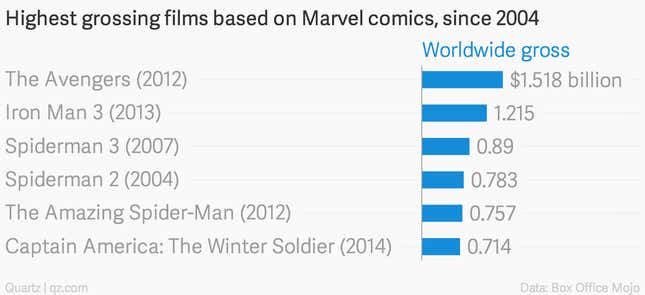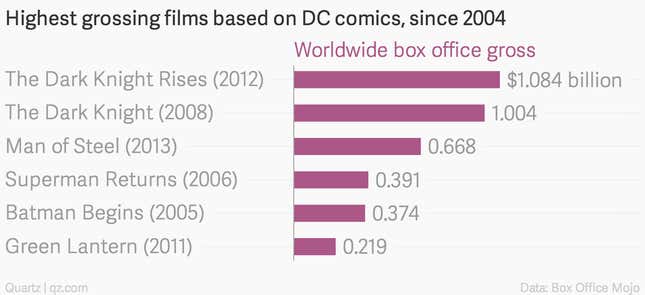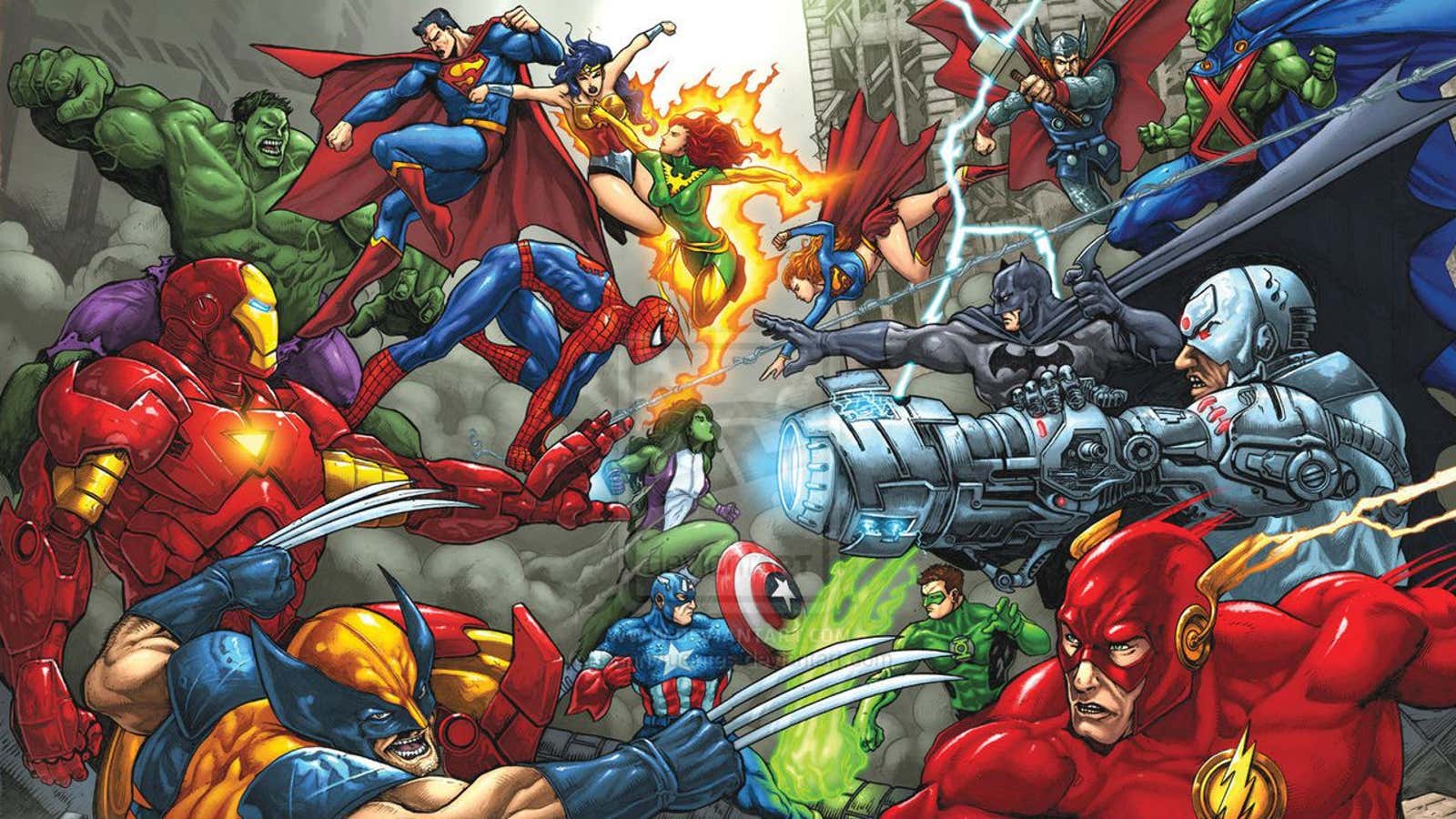If you’re a comic book fan, you’re going to enjoy the next decade.
DC Entertainment announced its next 10 movies, which will come out over the course of six years. It all starts in 2016 with Batman v Superman: Dawn of Justice—the sequel to 2013’s Man of Steel and a set-up for Justice League in 2017—and ends with Cyborg and another (and hopefully, better) Green Lantern in 2020. But we all know that won’t be the end: it’s just as far into the future as we mere mortals can see right now.
Couple that with the preposterously huge slate of 20 upcoming Marvel films, and you’ve got roughly three superhero movies being released per year for the next decade (which is far, far too many according to some).
DC’s superhero-movie spree is a direct challenge to Marvel’s current reign as comic book cinema king. Marvel has released more movies than DC has in recent years, and, on average, those movies perform better at the box office than DC’s do.

Compare that to DC’s recent slate, and you’ll see that Marvel has the clear boxoffice edge.

To be fair, Marvel has a lot more movies to choose from. And it has had more iconic, household names on its roster of heroes—Iron Man, The Hulk, Spider-man, Captain America, Thor, and the X-Men. To date, DC has banked almost exclusively on Batman and Superman. That will all change over the next 10 years as DC rolls out movies based on The Flash, Aquaman, and Wonder Woman.
DC’s Justice League—essentially, its equivalent to Marvel’s Avengers—figures to perform extremely well at the box office, potentially matching the $1.5 billion that the latter garnered (though the Avengers sequel, coming next year, could make more).
This is also a battle between two of the world’s perennial media companies: Time Warner, which owns DC Entertainment, and Disney, which bought Marvel in 2009.
But this is all to say nothing of the quality of these films. On the whole, this writer prefers the darker, grittier DC universe to Marvel’s oft-campy style. But there’s no denying that camp sells more tickets.




